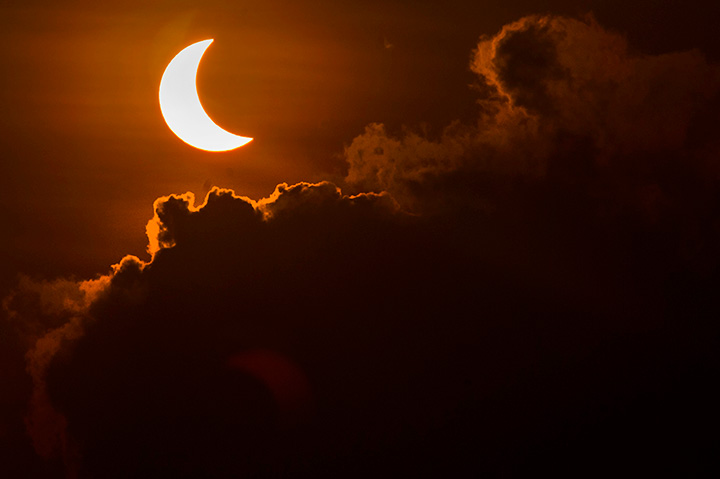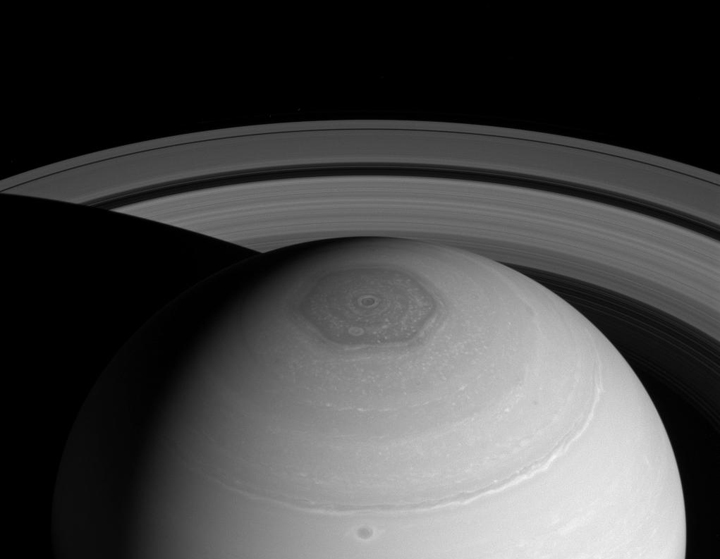Amateur astronomers, space-tourism hopefuls and anyone with even a passing interest in the skies above us will have plenty to look forward to in 2017, with a slew of celestial events set to occur between January and December.

The biggest headlines for Canadians will likely come this summer, as a new crop of astronauts is announced and people from Victoria to Halifax are treated to a solar eclipse.
Here, in chronological order, is what we can expect to see in space news this year:
SpaceX relaunches, Blue Origin on track
Tesla Motors CEO Elon Musk’s private space exploration company is set to get back on track this Sunday, Jan. 8, as the SpaceX program launches a Falcon 9 rocket.
The launch comes four months after a spectacular explosion destroyed a similar rocket and related equipment worth hundreds of millions of dollars.
Ultimately, Musk has said he wants to develop the technology and resources needed to colonize Mars.
WATCH: SpaceX identifies cause of September rocket explosion

Over at Blue Origin, a company founded by billionaire Jeff Bezos, work is still ongoing to get tourists into sub-orbital space.
Last October, Blue Origin President Rob Meyerson said the company is “still on track for flying people — our test astronauts — by the end of 2017, and then starting commercial flights in 2018.”
Close comet call
On Feb. 11, comet 45P/Honda-Mrkos-Pajdusakova will swing by Earth at a distance of about 12.4 million kilometres. That may seem like a long way off, but it’s close enough that the comet may be visible to the naked eye as it crosses our path.
Anyone without a telescope can expect to see a tiny, fuzzy light in the night sky just before dawn near the constellation Hercules. Weather permitting.

Get breaking National news
New Canadian astronauts
The Canadian Space Agency hasn’t given a precise date yet, but the department says it will announce the names of two new astronauts sometime this summer.
WATCH: Who will be the next Canadian astronauts?

The competition to join the current team was launched last year, and as of late September the pool of candidates included just over 1,700 men and women. Once the final two are chosen, they’ll move to Texas in August and begin training.
Total solar eclipse
The biggest cosmic event of the year for North Americans is set to occur on Aug. 21, when the moon will fully obscure the sun along a narrow band that spans the continental United States.
If Canadians want to see the full monty, they can travel to spots like Nashville, Tennessee or Great Smokey Mountains National Park, which spans Tennessee and North Carolina.
IN PHOTOS: Stunning images of 2016 Indonesian eclipse
In Canada, the solar eclipse will still occur, but it won’t be a full one. People in Toronto and Ottawa will see an eclipse of about 70 to 80 per cent of the sun, for instance, while Vancouver will be treated to 90 per cent. In Nunavut’s capital of Iqaluit, only 30 per cent of the sun will be covered by the moon.
Cassini’s big finale
Sept. 15 will mark the end of the Cassini spacecraft’s 20-year lifespan as the craft makes a suicide dive toward Saturn around 8 a.m. ET.
Before burning up, however, Cassini will be snapping pictures like crazy this summer, giving humanity an unprecedented, close-up view of the ringed planet.
After climbing high above Saturn’s north pole, the craft will probe the water-rich plume of the active geysers on Enceladus, one of Saturn’s moons. Then it will “hop” the rings and dive between the planet and innermost ring 22 times.
Meteor display
The annual Geminid meteor shower is expected to light up the sky in the early morning hours of Dec. 14.
This year’s shower, producing between 60-120 shooting stars per hour, may be especially stunning if we have clear skies that night across Canada. The moon will be just a sliver on Dec. 14, and won’t obscure the show.

Bonus: New Trek
Fans of one of the world’s most enduring and beloved science fiction franchises will have an especially exciting 2017. The first new Star Trek television series since 2005 is set to premiere in May, after being pushed back from its original launch date of January.
The new show is reportedly set roughly a decade before the events of the original Star Trek series, and features a female lead.
Star Trek: Discovery will premiere in Canada on CTV on the same night as the U.S. premiere, with subsequent episodes initially airing on Space. The series will then be available to stream on CraveTV.







Comments